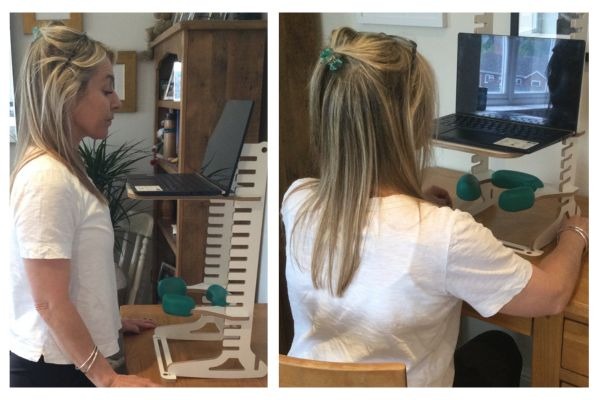As global online learning continues to expand at a rapid pace, experts are emphasising the importance of good posture for both health and academic success. The e-learning market is projected to grow by 20.5% between 2022 and 2030, with more than a third of the UK population now attending virtual courses or lectures. Among those aged 16 to 44, over half are using platforms like YouTube to acquire new skills.
The rise of online education has brought concerns over the impact of prolonged screen time on physical health, particularly when it comes to posture. Chiropractors warn that poor posture can not only lead to physical discomfort but may also impair cognitive performance, making it harder for students to focus and retain information.
Dr Neil Reilly, a chiropractor with decades of experience in treating posture-related conditions, highlights the significant link between good posture and learning outcomes. “Poor posture doesn’t just cause neck and back pain—it affects mood and concentration, which are essential for effective learning,” he explains. “With more students spending hours in front of screens, addressing posture is crucial for their long-term success.”
Research backs up these claims, showing that maintaining proper posture can boost mood, attention, and memory—key factors in academic achievement. In today’s digital world, where online learning is becoming the norm for many, these factors are more critical than ever.
Dr Reilly, who graduated as a chiropractor in 1987, has seen a sharp increase in posture-related complaints as more people transition to remote learning and work. In response to these issues, he has developed a new ergonomic device, the Eyeprone, designed to relieve neck and back strain caused by extended periods in front of screens.
“With the surge in e-learning, promoting good posture is essential to mitigate the physical toll of prolonged screen use,” Reilly explains. “In the UK, 2.9 million people already live with back or neck problems, so the link between posture and cognitive performance is more relevant than ever.”
The Eyeprone, Reilly’s latest innovation, aims to address the growing need for better ergonomic support. As more students and professionals continue to adapt to online learning environments, devices like these are becoming increasingly important for maintaining physical well-being.
With e-learning continuing to grow at a rapid pace, particularly in the wake of the pandemic, more attention is being given to the holistic needs of learners. Physical health, once an overlooked aspect of online education, is now seen as vital to ensuring the success of students. Ergonomic health is becoming a key factor in helping students achieve their academic goals while maintaining their long-term well-being.
“As we look ahead to 2030 and beyond, it’s clear that the future of education will increasingly take place online,” Reilly concludes. “By focusing on good posture and ergonomic practices, we can help ensure that students are able to perform at their best, both physically and academically.”

